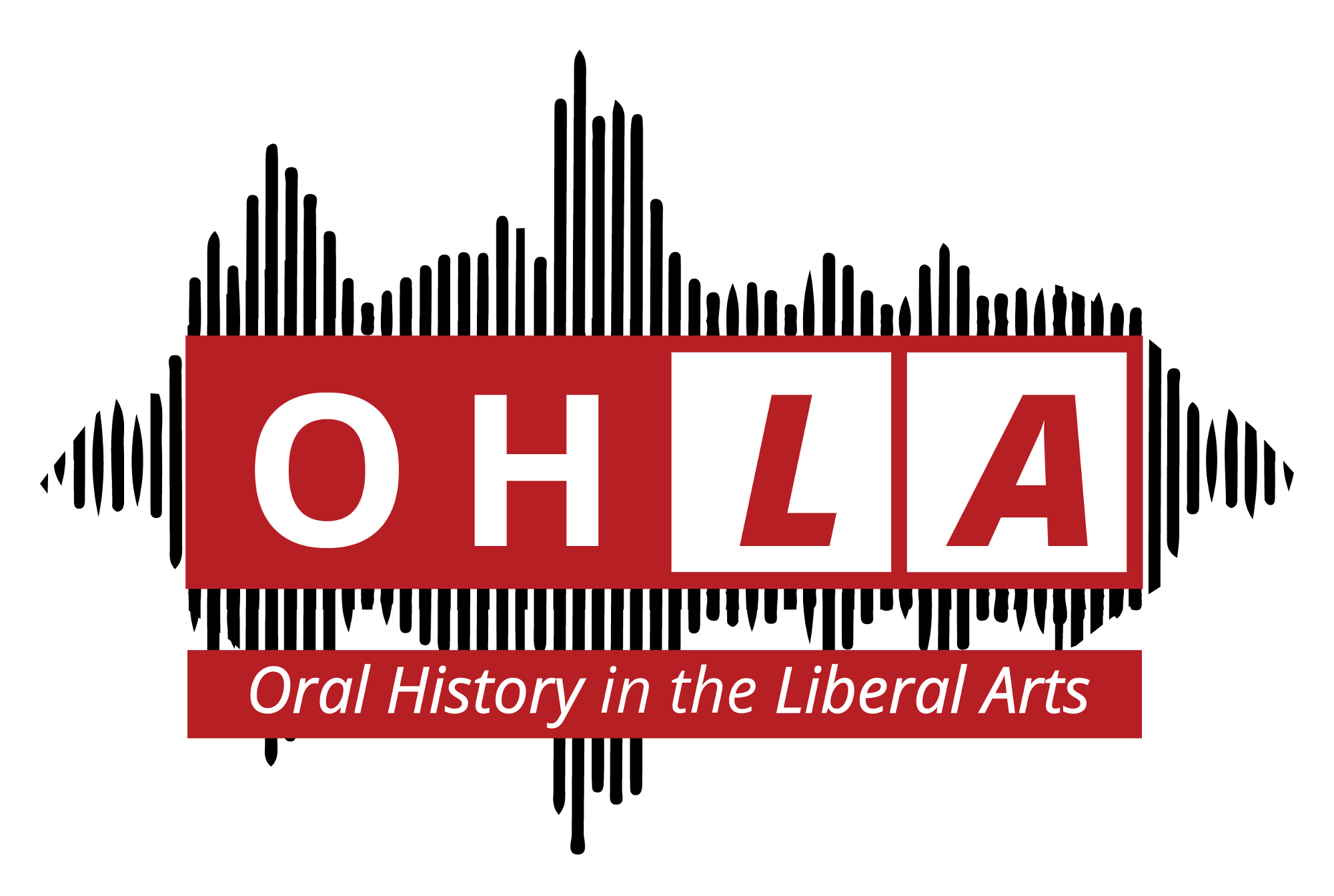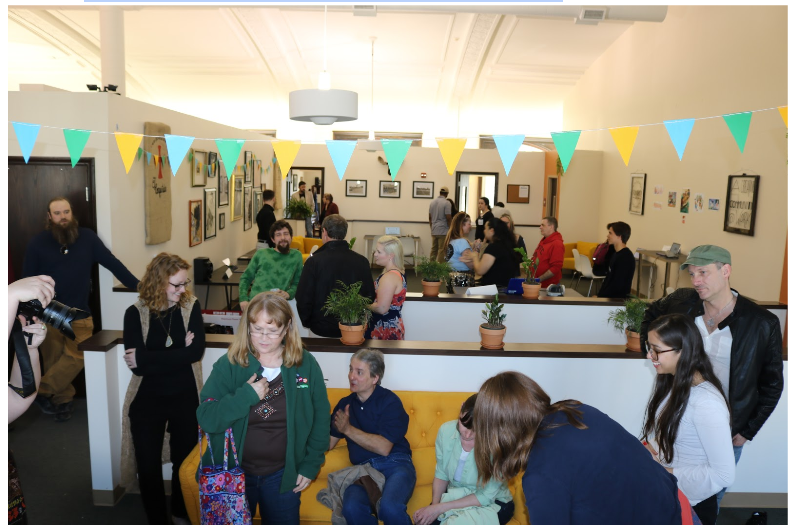If I had to pick my favorite benefit of using oral history in the undergraduate classroom, it would be the extent to which students get to know a community through listening to their stories. Spending hours listening to folks’ life stories turns out to be a great way to both understand a community more deeply and stitch connections to that community. When students create podcasts based in oral history, they are both doing interpretive work and developing documentation of a place and its people. While this work can of course be shared digitally—remotely—I have found hosting a podcast listening party in the community to be immensely rewarding to students. They garner immediate feedback on their work, get a chance to celebrate with their interviewees, and consequently forge even stronger connections with the community.
But hosting a community event is hard work, especially if you host it in a community space rather than on campus, a choice that moves students into town and can feel more welcoming to a wide audience. How to facilitate this work? Put together a student-run Event Planning Committee.
In the past, I’ve assigned individual jobs to students (e.g., develop marketing materials, arrange food, produce event materials), but I have functioned as the de facto planning committee. I have found this practice to be unsustainable at semester’s end, when students’ needs are high, grading load is heavy, and wits are generally frazzled. Lots of students, however, are experts at this stuff, having organized co-curricular fundraisers, dances, and much, much more.
It’s helpful to choose the event location and work with the owner to secure a date before turning things over to students. Armed with those details, a student committee can meet with the location owner to look at the space, brainstorm ideas for the event, develop a punch list for both the weeks leading up to the event and the day of. The committee can then solicit volunteers from the class to manage various items.
This year’s events featured listening booths, a wall of portraits, kids’ activities, scrapbook sharing, and refreshments. Students mingled with community members and gave a brief presentation on their work, and the evening ended with a quick belly-dancing demonstration from a local group. The event was free, child-friendly, and easy: guests could pop in for a quick drink, sample the podcasts, and chat with the students. But the mingling had a big impact—students got to celebrate their work with the community, practice talking about the project, and spend time together, and the event helped to spread the word about the project. Check out the Meadville Tribune’s article about the event, where one student said, “I had that opportunity to really experience Meadville, and I’m really glad I got to do it.”
Photo 1: A student shares a podcast with a community member at a listening station.
Photo 2: Guests mingle at Foundry CoWork, a new coworking space in Meadville.
Photo 3: Student-produced scrapbook about Meadville’s community work.
Photo 4: Students share a local child’s assessment of Meadville.





